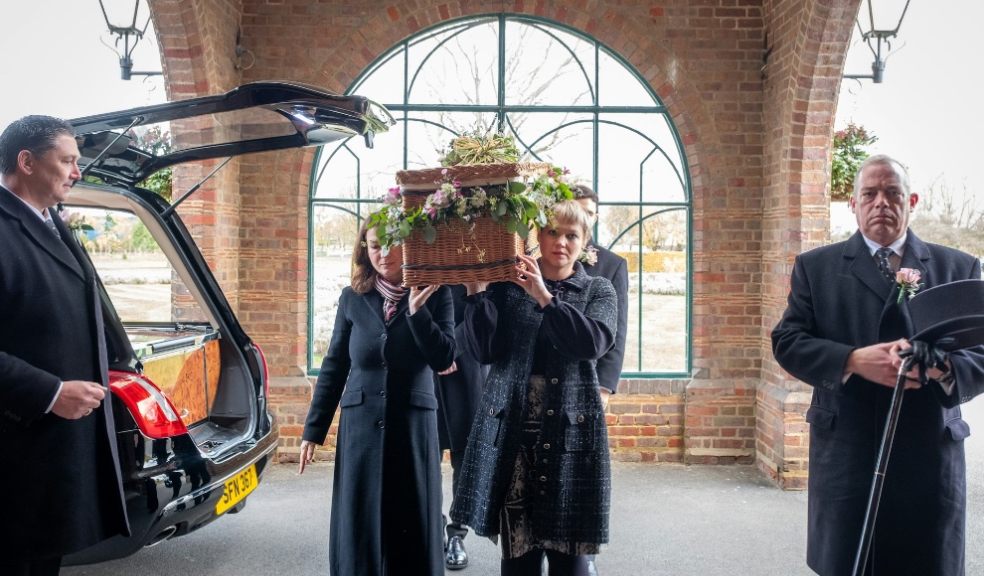
Should I Be a Pallbearer?
A funeral is a time of grief and in these situations people often look for symbols of authority and responsibility. Being a pallbearer personifies this role.
A pallbearer at a funeral is considered a position of honour. But it can also be a difficult time, particularly if you were very close to the deceased.
That you’ve been asked also represents that you’re seen as support to the immediate family too.
Politely decline the offer if you feel it might overwhelm you. Speak with the person who asked you, perhaps suggesting alternative ways you can contribute or support. You could help with arrangements or provide emotional support to others. It’s important to be honest about your comfort level.
What Do I Do?
The duties usually differ slightly depending if it’s a burial or cremation. But you’ll be fully supported, and the funeral director will show you what to do and where you need to be. For example, you might be involved in:
- Taking the floral tributes
- Directing mourners into the service
- Thanking mourners for attending as they leave the service and helping them with directions to any gatherings afterwards
- If it’s an open coffin service you might be asked to witness the closing of the coffin.
At a burial there’s usually a service in the church first and the pallbearers will transport the coffin from the hearse into the church then to the burial site following the service.
With a cremation you’ll help move the coffin from the hearse to the crematorium. Pallbearers carry the coffin on their shoulder or by the handles. Sometimes the coffin is wheeled in on a trolley.
Pallbearers also lower the coffin into the grave during a burial.
The physical ability to carry the coffin might also be an issue. Generally, the coffin is not too heavy when distributed between pallbearers. The funeral director will be experienced in arranging pallbearers, so if you’re asked don’t worry about the weight being too much.
If you’re not physically able to hold the coffin you can be appointed as an honorary pallbearer and follow alongside the coffin.
If You Don’t Want to Be a Pallbearer
Grief can affect your decision to be a pallbearer and you may be too upset, feeling you can’t carry out the duty as you would want.
Speak with the family and explain your reasons. Ask to contribute in other ways.
You’ll know how you feel about the situation and what the family will expect from you. If you’re too distressed it might be harder to carry the coffin.
The Significance of Being a Pallbearer at a Funeral Service
A pall is a heavy cloth that is draped over a coffin. Originally the pallbearer would hold the corner of the cloth as the coffin was moved into the church and has evolved into actually carrying the coffin itself.
It’s considered a great honour to be asked to be a pallbearer, but it can be emotionally difficult too. Some people feel they cannot complete the role properly because they’d be too distressed. Often pallbearers are close family members. Most funeral directors offer pallbearers in their funeral plans. Search for funeral directors near me to find a list of those in your area, then
Other Considerations:
- Listen to instruction from the funeral director
- Arrive early and stay late to help the family
- When the hearse arrives you should stand behind it in silence
- The dress is more formal than you would if you were attending a funeral
- Pallbearers bow to the coffin for a few seconds when indicated by the funeral director
Funeral directors are experienced at advising pallbearers so listen to their instruction.
Final Thoughts
If you’ve been asked it’s likely it’s because your presence will offer comfort to the family of the deceased. Every funeral service is different, and you might only be asked to greet guests.
Nerves are a normal part of being a pallbearer but the funeral director and their staff are there to help and guide you. These are experienced people who are used to the circumstances.
If you do decide not to take up the request because it would be too emotional for you, then the family will understand. But advise them in plenty of time.




















